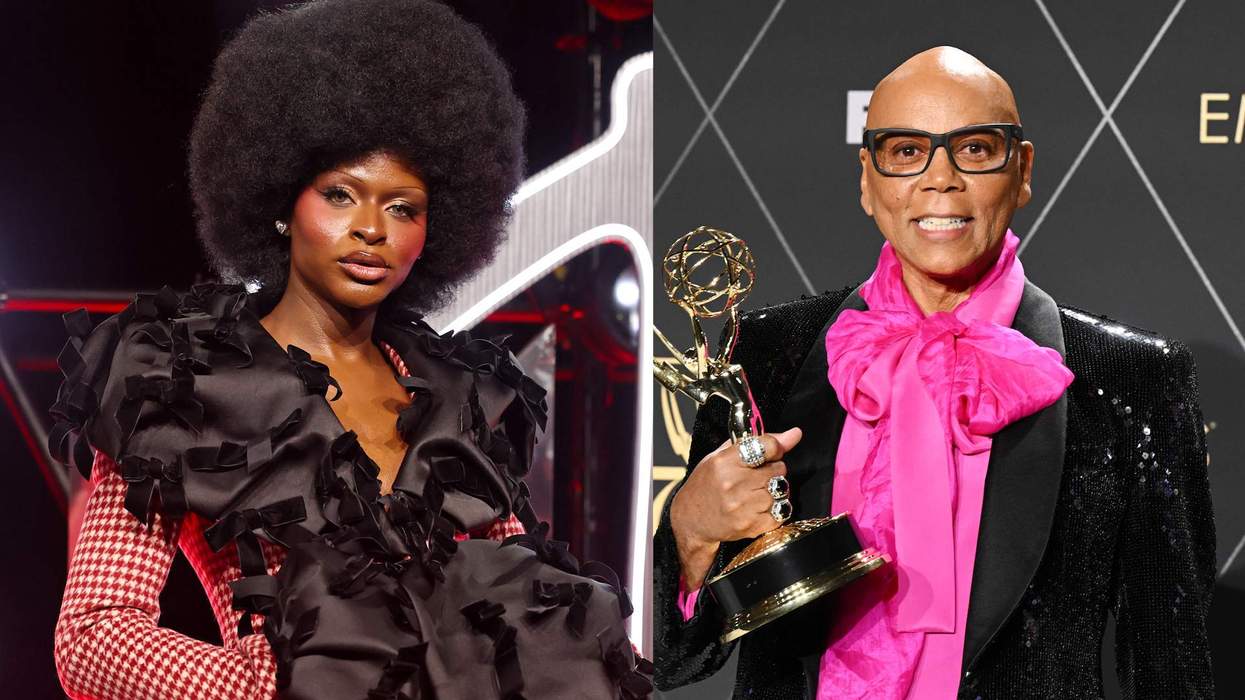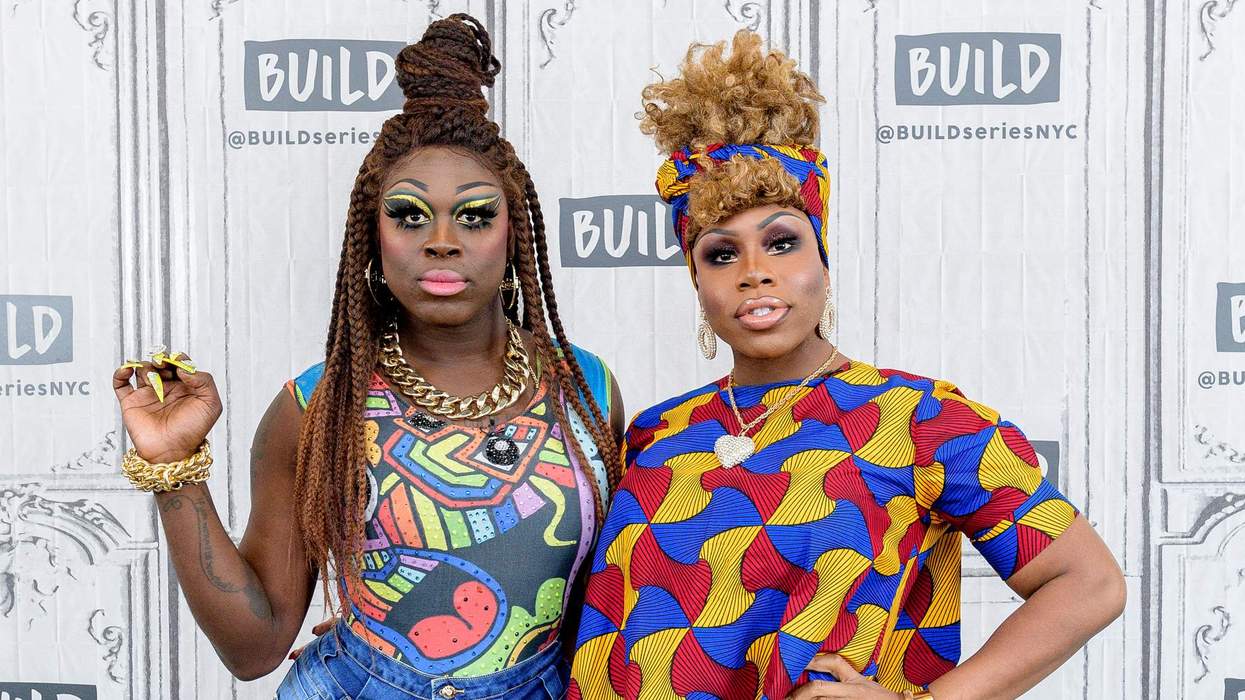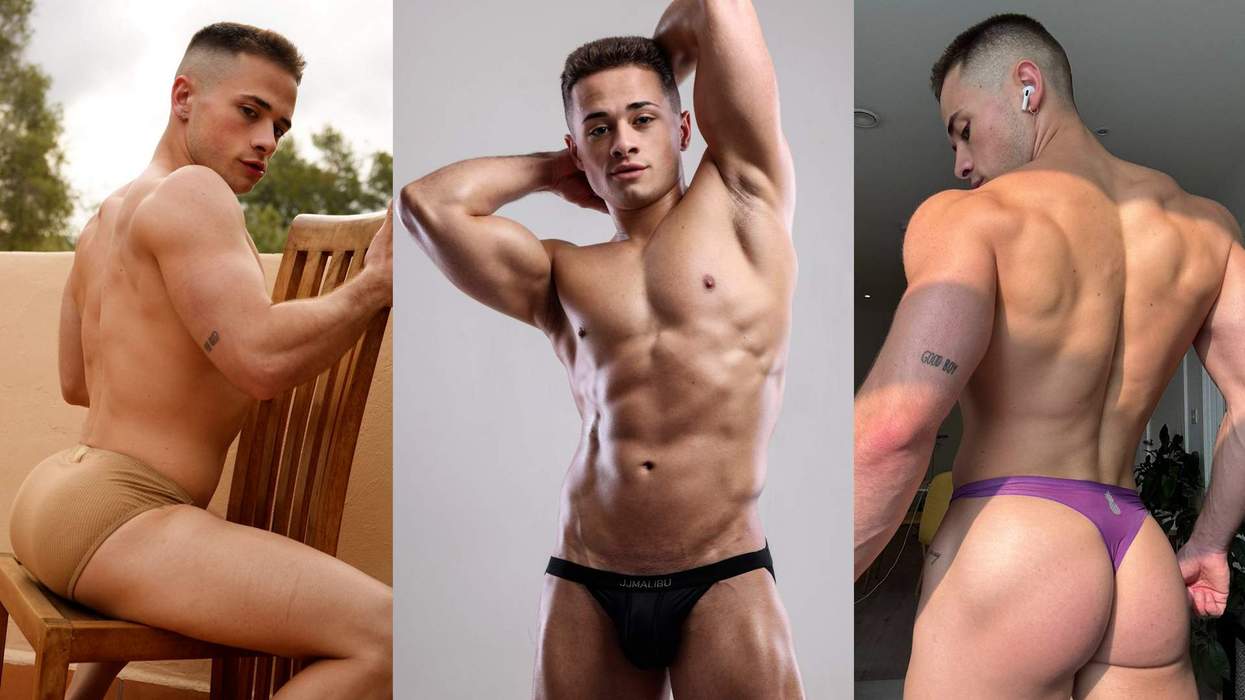Daniel Levy is no stranger to telling queer love stories. David and Patrick’s relationship on Schitt’s Creek is perhaps one of the most beloved modern gay romances set to screen. It’s sweet, pure, idealized — and it’s essential that we see aspirational stories like it.
However, just as we need love stories that exalt queer love, it’s just as important to see it in all its nuance, complexities, and complications. In Good Grief, writer, (first-time) director, and star Levy does just that and the result is both aching and cathartic — and wonderfully, messily familiar.
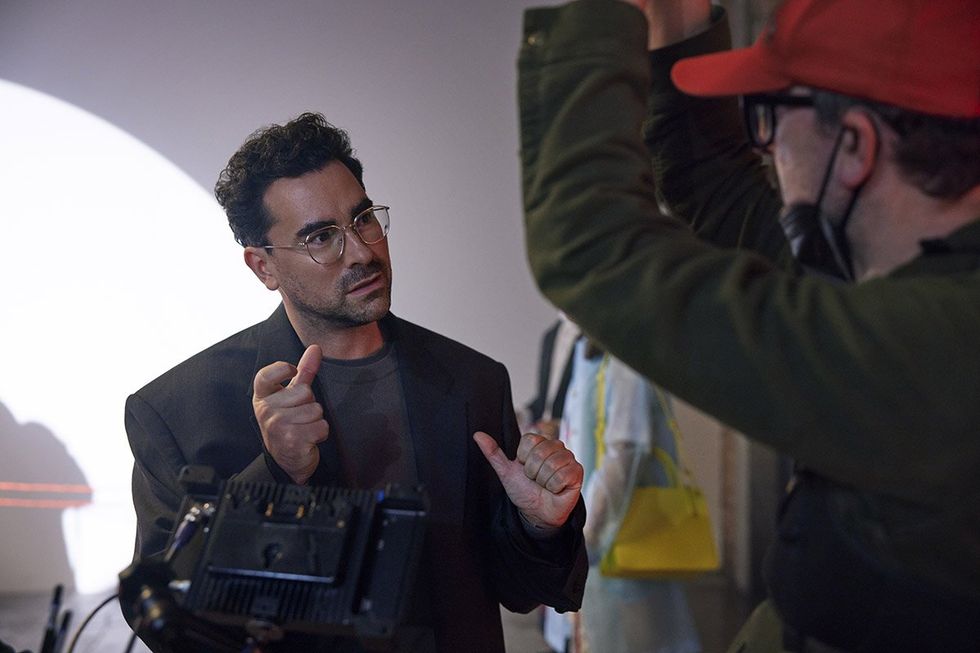
Courtesy of Netflix
In the film, Levy stars as Marc, a man whose life is rocked by the shocking and sudden death of his husband Oliver (Luke Evans). Rallying around him are his two best friends, the chaotic Sophie (Ruth Negga) and ex-lover turned friend Thomas (Himesh Patel). A year after his husband’s passing, Marc discovers there is more to Oliver’s life than he suspected and sets out on a journey to Paris with his friends to face hard truths and hopefully find peace.
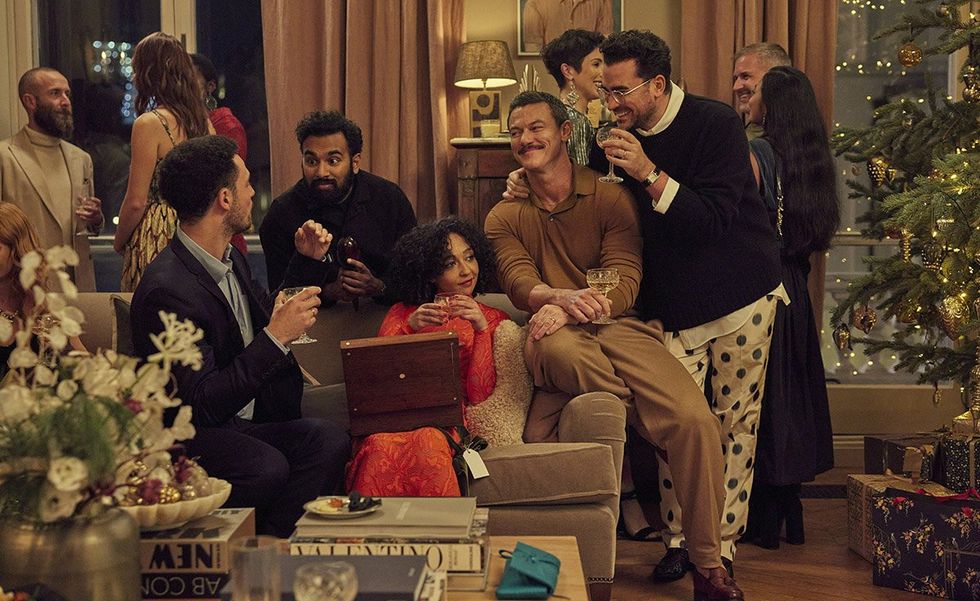
Courtesy of Netflix
More than just a typical love story, Good Grief mines the passion, pain, and pleasures of old love, new love, and friendships. None of these relationships are easy and uncomplicated, but all are rewarding and healing in their own ways. It’s the imperfections of the people in this puzzle that make them fit together and complete one another. Nothing is simple, but that’s ultimately what makes it all worthwhile. Will Good Grief make your heart ache? Most definitely, but the promise of the future is bittersweet and hopeful. That’s exactly what Levy set out to show when began questing after the “truth” in relationships through this film.
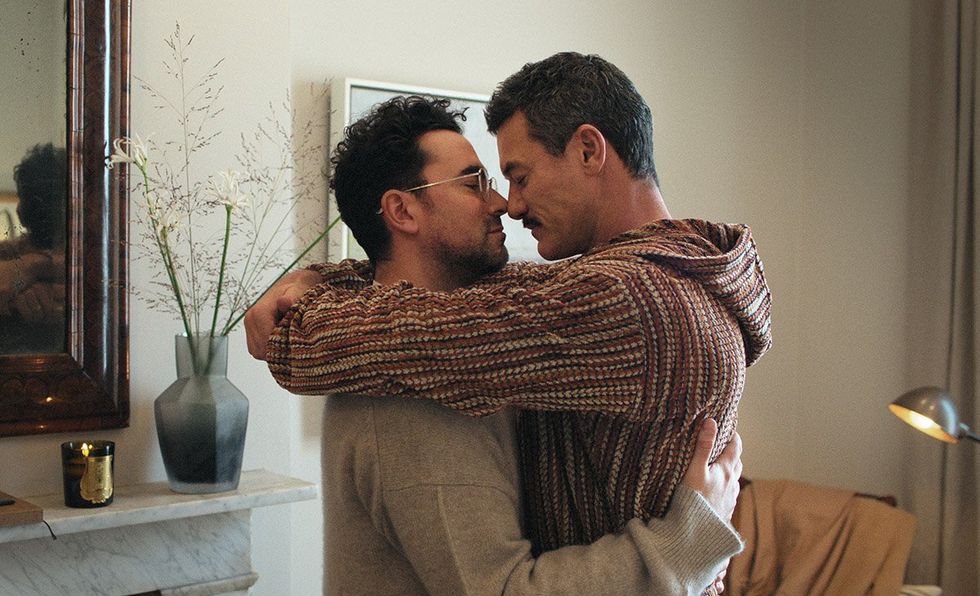
Courtesy of Netflix
“I think people, for a variety of reasons, don’t want to tell the messiness of it, they would rather err on the side of idealism,” Levy tells PRIDE, pointing to his own example of Schitt’s Creek. “In this particular story, it was about the reality of a relationship, and how tricky it can be. The truth and the hidden truths and the secrets and the lies and not being scared of showing, in this case, a gay relationship that was imperfect. But that was rooted in something very deeply loving, even though it got complicated, and it got messy, even though there was deceit, and even though there was withholding of truth on both sides, it was rooted in love.”
Watch PRIDE's full interviews with Daniel Levy, Ruth Negga, and Himesh Patel below.
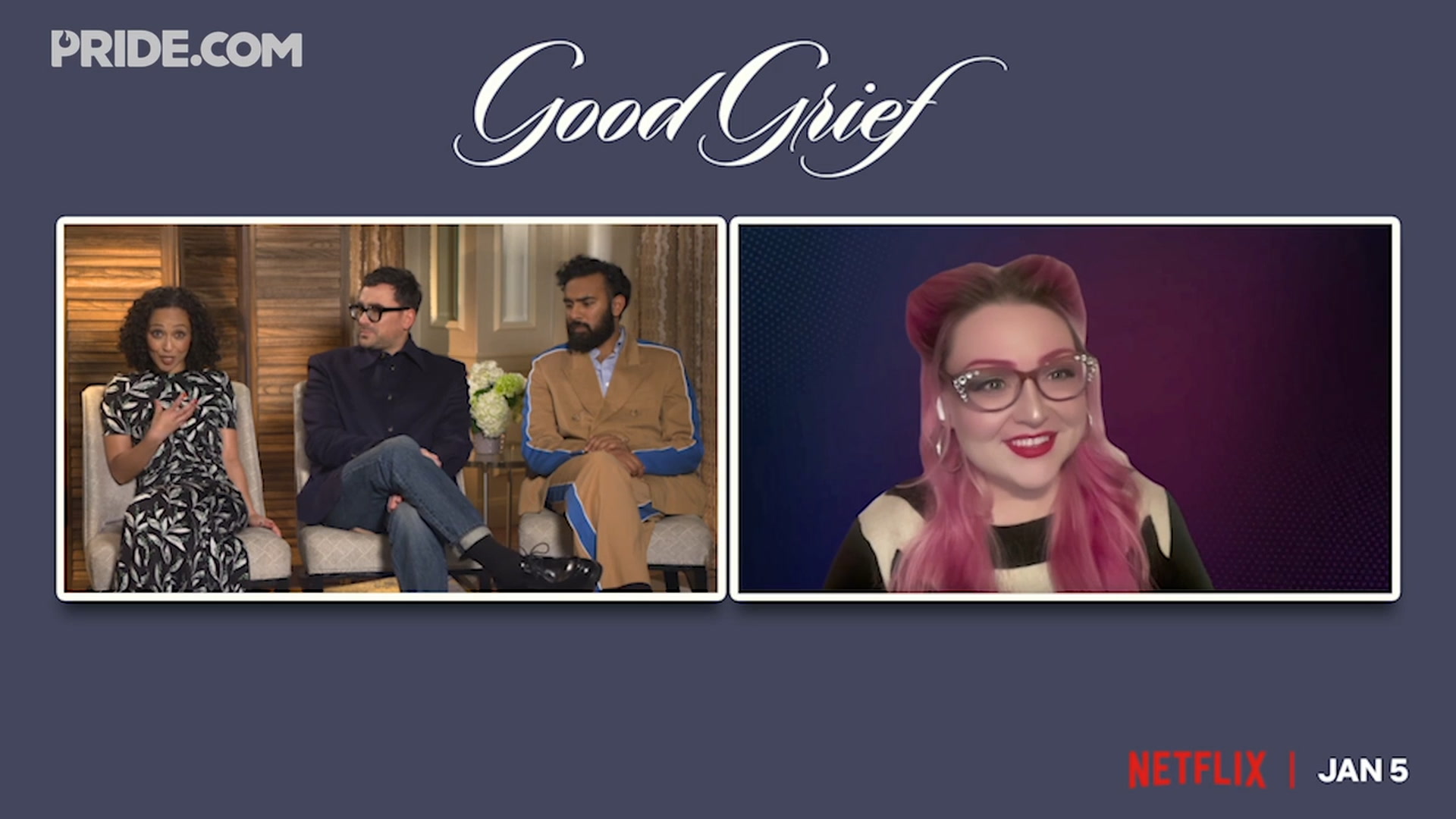
For Levy, that meant approaching the couple’s nonmonogamy, which is at the heart of Marc’s contradictory feelings about his late husband, without judgment. “I never wanted it to feel like it was a bad thing. It was just about how the character entered that relationship that was on rocky ground,” he explains. “There were so many things, especially when you’re dealing with open relationships and relationships in proximity to queer conversations, there’s so much judgment around it already, it was important for me to just show it as it is, and not place judgment one way or another, but rather just show the flaws of the relationship, but also the joy and also the love and celebrate all of it.”
That same kind of grace is something that extends to all the characters in Good Grief. In films less interested in nuance, they could be painted as villainous, be it Oliver who kept secrets from his partner, or Sophie whose chaotic behavior could easily be seen as toxic rather than what it truly is: borne of fear of the future.
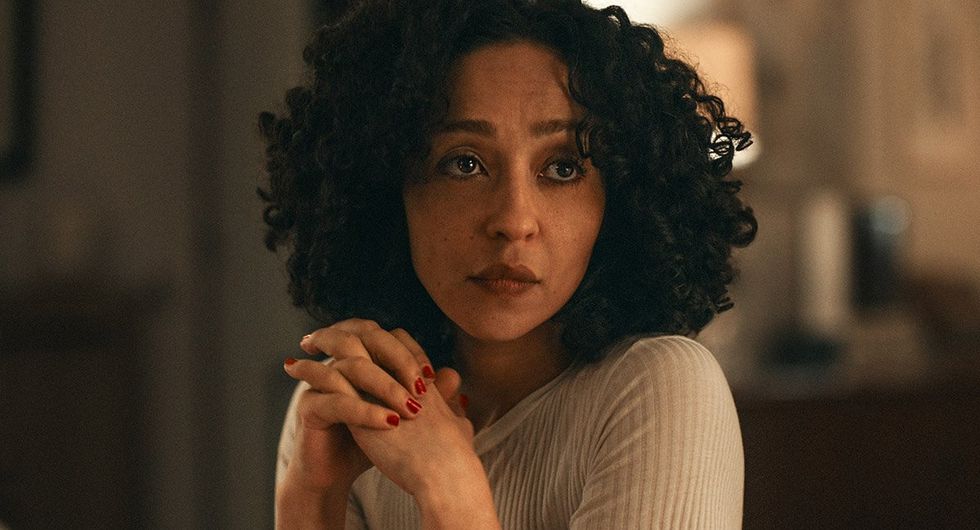
Courtesy of Netflix
“I love that word, grace. That’s the perfect word for this film,” Negga tells PRIDE. “It’s the word that I think is perfect to describe friendship. We give each other grace. That’s what friendship is, those grace moments that you thank the Lord for.”
For Negga, stepping into the shoes of Sophie was very relatable, if sometimes challenging. “I find it quite uncomfortable watching her make these kinds of mistakes, because I know if she just stands still for a minute she’ll find herself,” she recalls. “You also know that all her friends know that and that’s what I think is so important. That word grace I’m so glad you used that because that’s what they afford her. And she knows it. And that’s what heals her. And that’s what gives her the strength to be able to see it. You know, give herself that grace.” It’s a reminder that friendship can be as messy and complicated as romantic love — but also as healing and fulfilling. It’s another way that Good Grief is truly a queer love story, as the connections we build with our friends, and our chosen family, have an especially powerful bond.
Watch PRIDE's full interview with Arnaud Valois below.
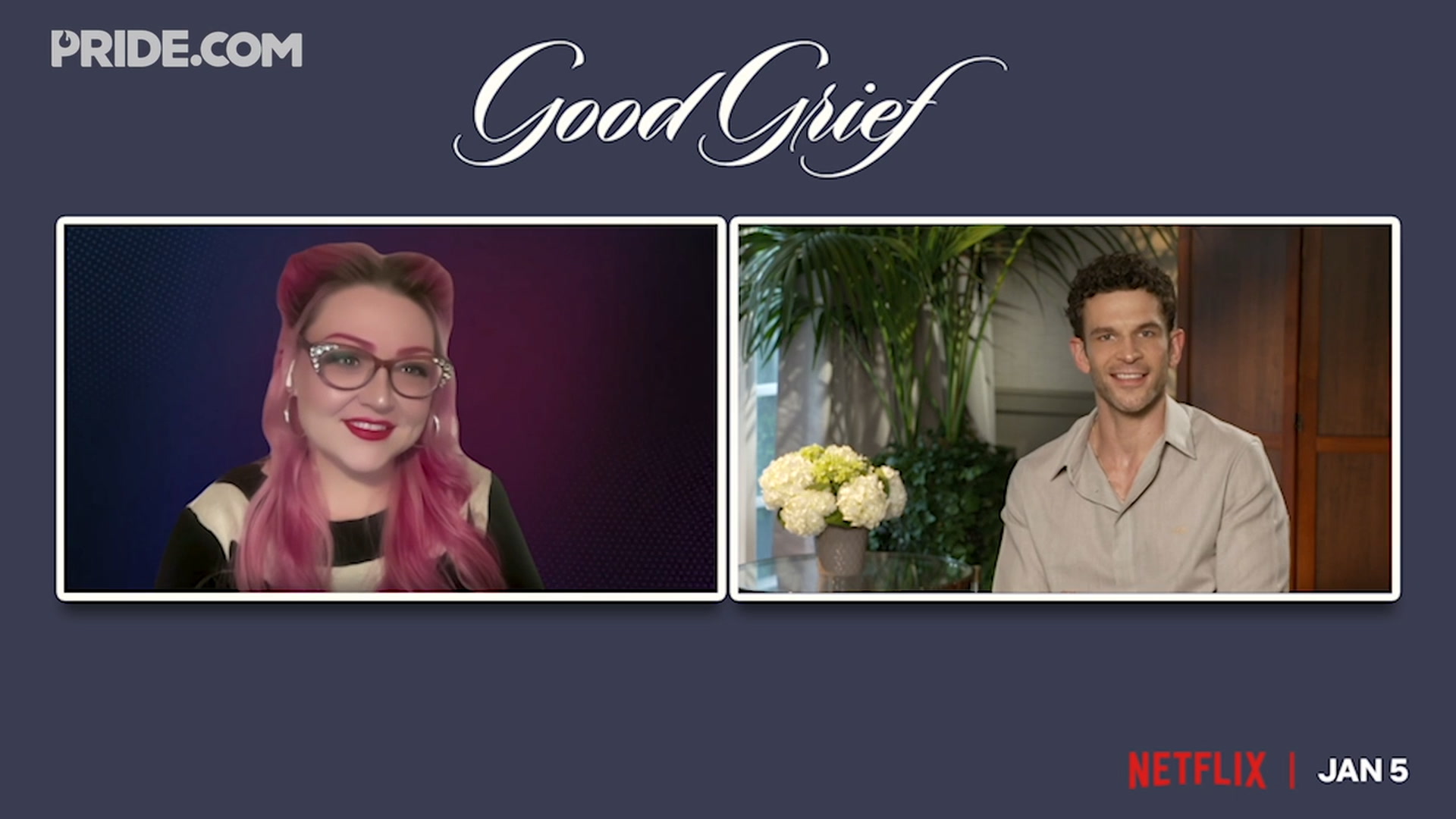
That’s not to say that the film doesn’t touch on romance. Along with the powerful connection and chemistry we briefly see between Marc and Oliver, Marc goes on to strike up a romance with a new man, Theo (Arnaud Valois), who fate puts in front of him at exactly the right time.
“I think life is timing,” Valois tells PRIDE, reflecting on how Theo is exactly the right man for Marc to meet at exactly the right time. He is handsome, yes, but moreso he is emotionally generous and uninterested in playing any kind of mind games. He becomes a place for Marc to not only rediscover that side of himself again but to say all the forbidden things he’s feeling that he can’t even share with his friends. At some point, Marc must move on, and Theo represents that, explains Valois. “It’s been a year grieving for [Oliver]. And he doesn’t want to go to that party. And then he meets that guy,” Valois says. “It’s not about forgetting him, but he’s moving on in his life. And then he’s in Paris. And yeah, it’s messy, why not have a drink with him, and then back again, and here we go.”
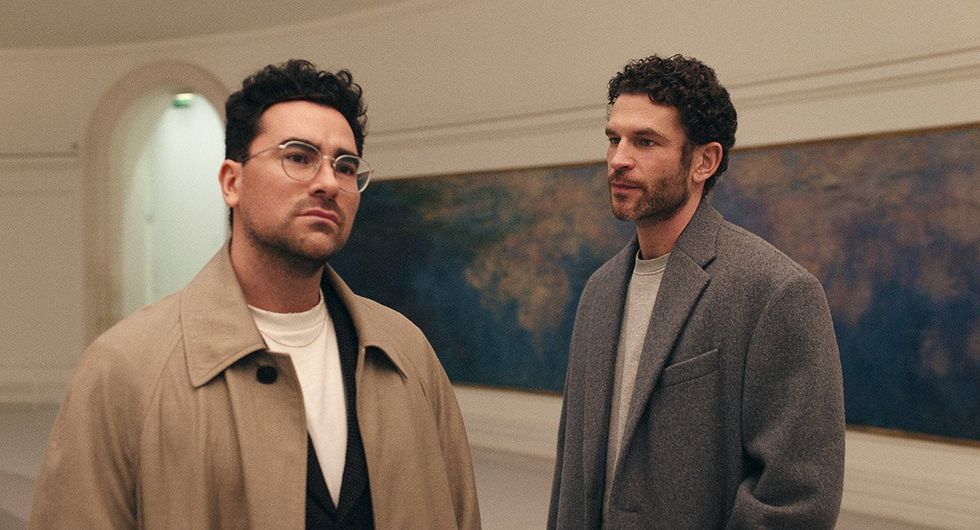
Courtesy of Netflix
Film is such a powerful medium because it so often serves as a mirror, and, like the character of Theo, a place to put and process the hard feelings we may try to avoid, like grief itself. Valois ultimately hopes that can be the case for those watching this film as well, but that the message of hope will resonate, too. “It’s very dark and difficult emotions. But that can lead to very bright and beautiful feelings,” he says.
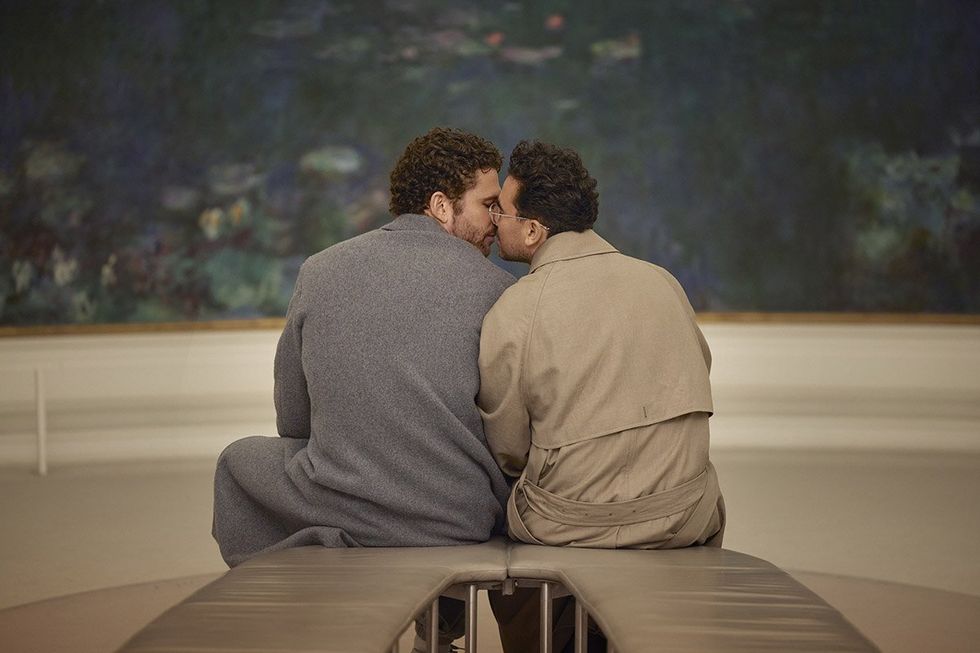
Courtesy of Netflix.
But most of all, Levy hopes that people will see his efforts to tell an authentic love story. “For me, it was just about telling the truth of of a relationship and trying to honor that it didn’t really matter who these people were, it was just about what their relationship was, and making sure that that was articulated as realistically as possible,” he says. In embracing both the sacred and profane, Levy, along with the audience that joins him and this stellar cast for the ride, are accepting that real love is both.




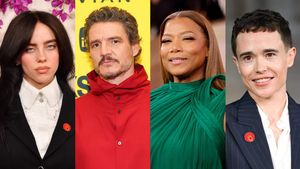





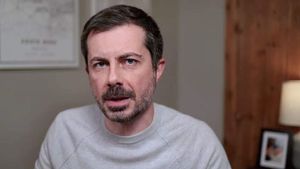


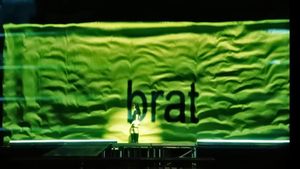

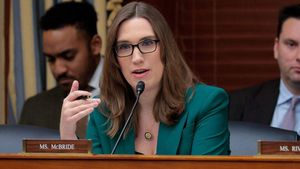
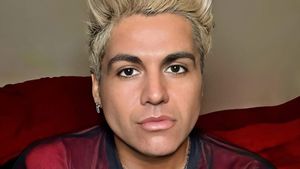
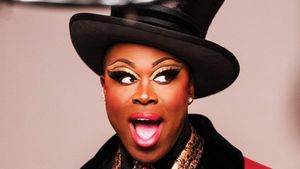







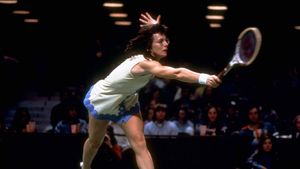



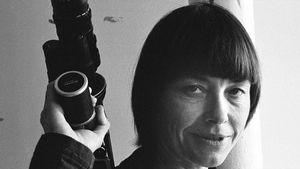





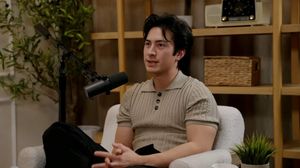

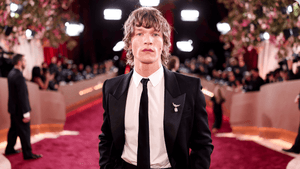

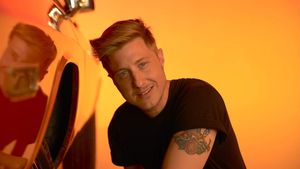
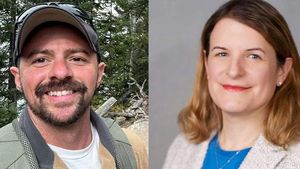



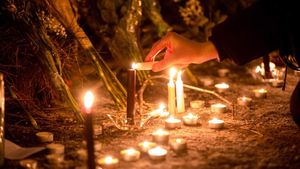

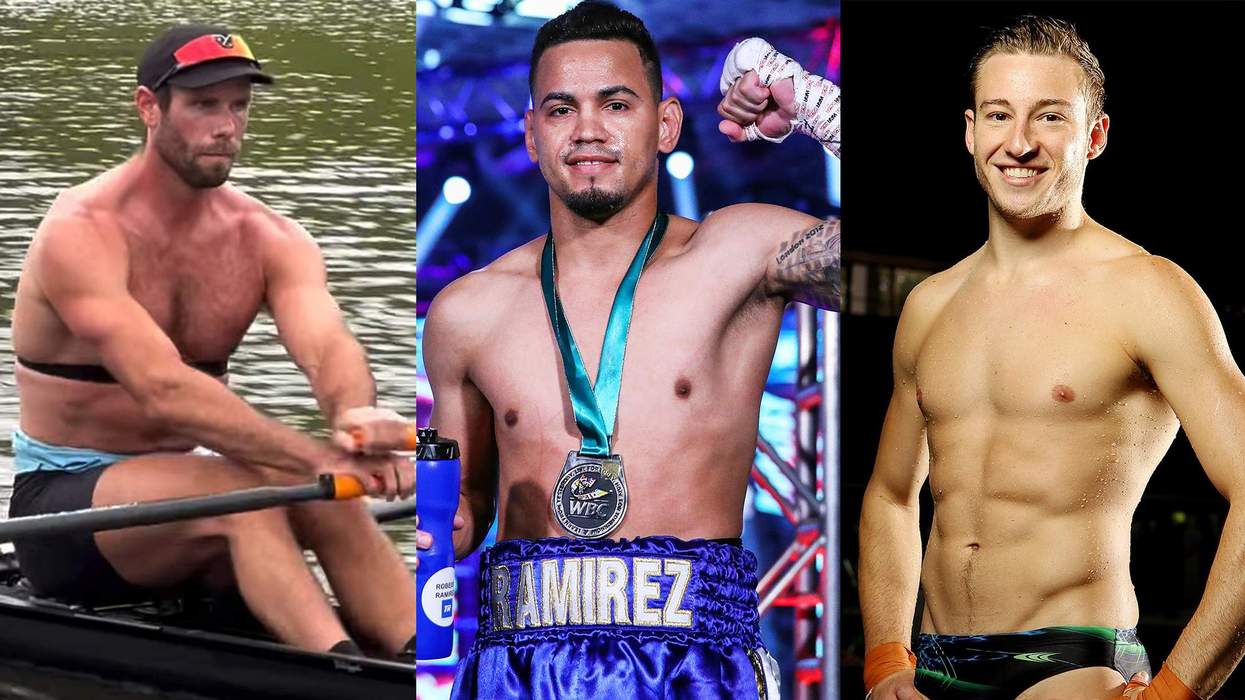
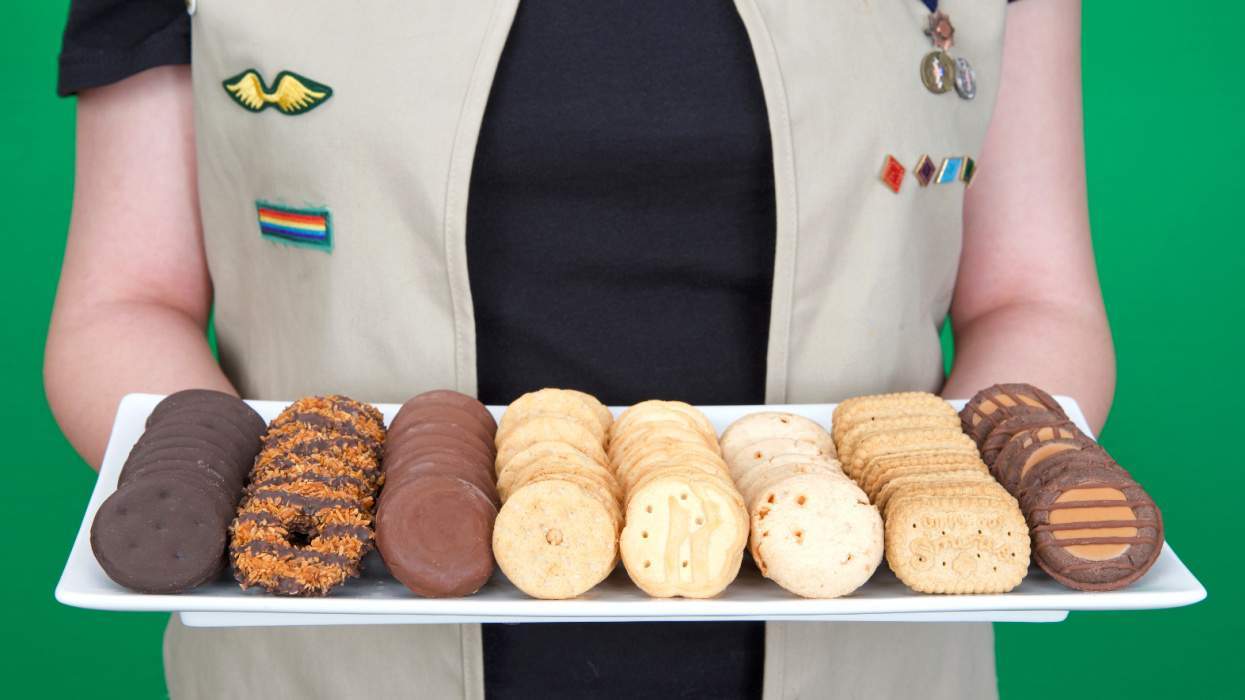
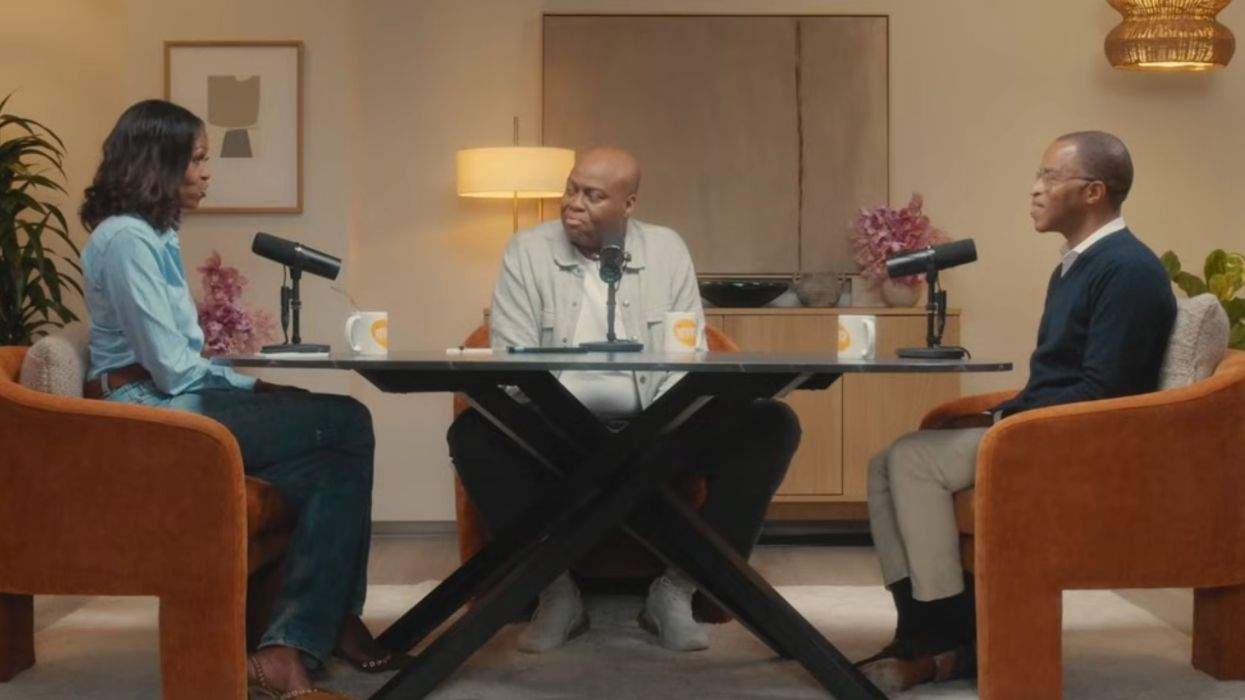
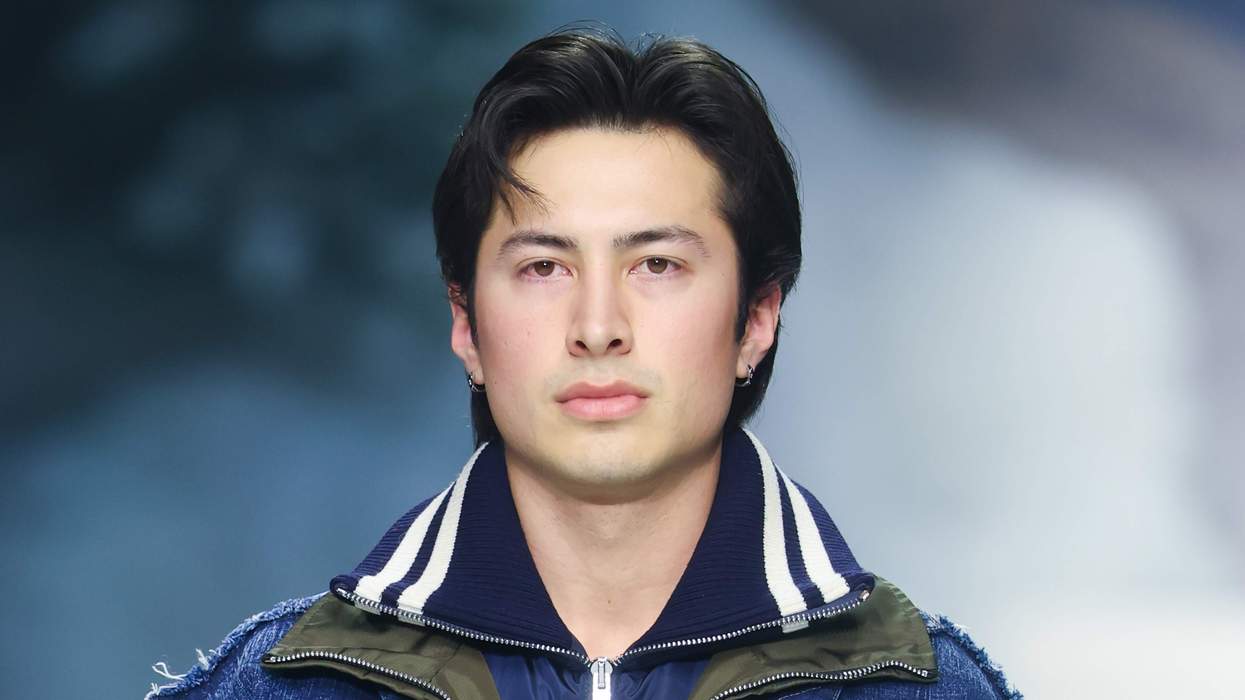






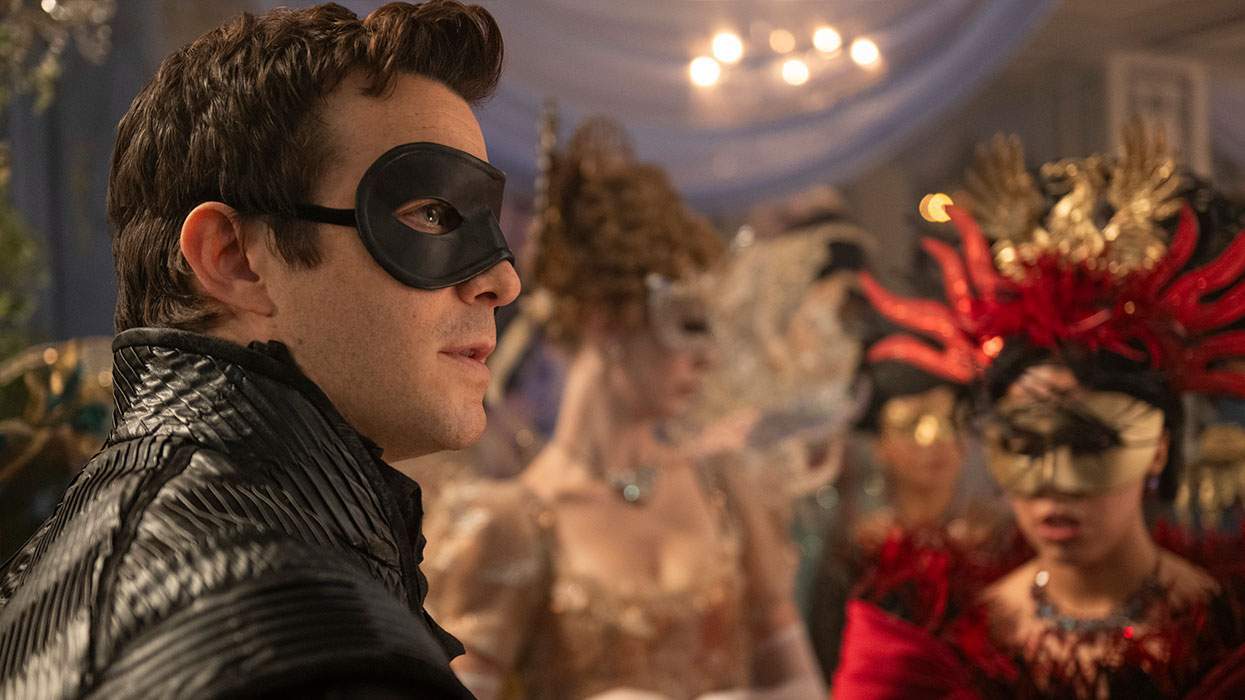

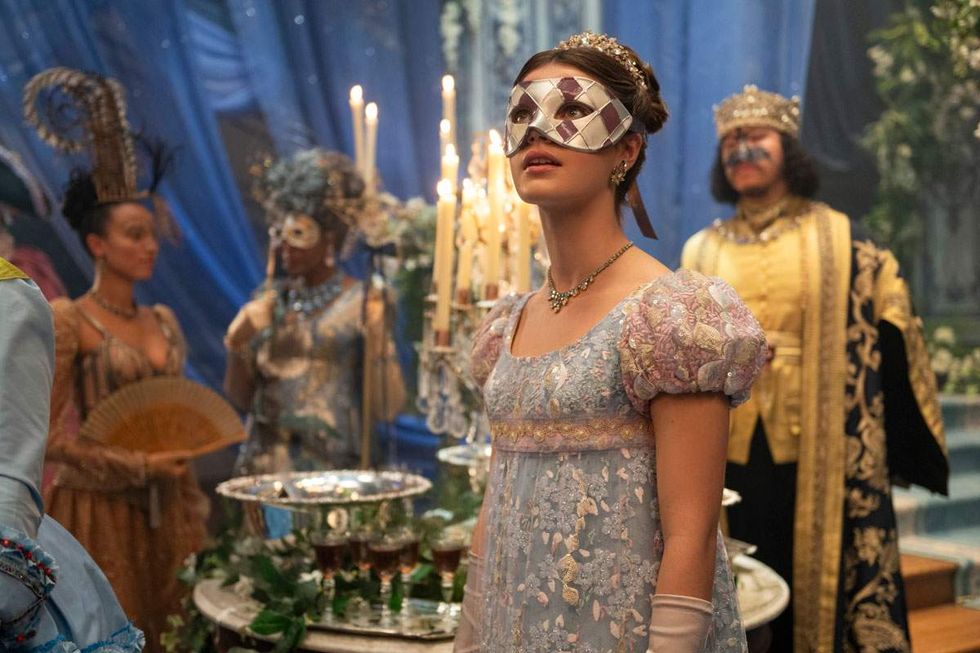 Hannah Dodd as Francesca BridgertonCourtesy Netflix
Hannah Dodd as Francesca BridgertonCourtesy Netflix
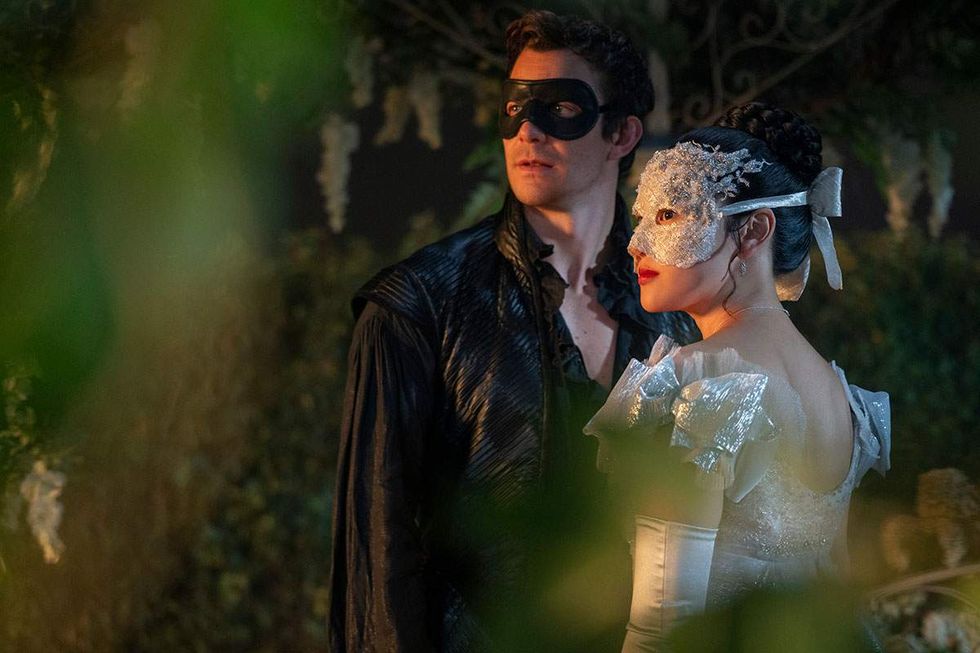 Benedict (Luke Thompson) and Sophie (Yerin Ha) in Bridgerton season 4.Courtesy Netflix
Benedict (Luke Thompson) and Sophie (Yerin Ha) in Bridgerton season 4.Courtesy Netflix
